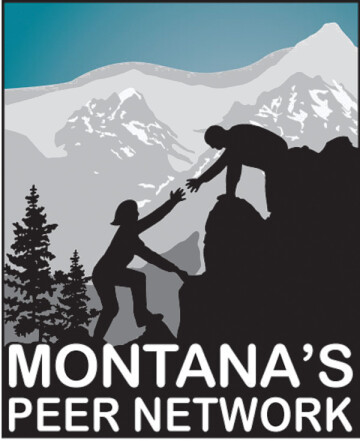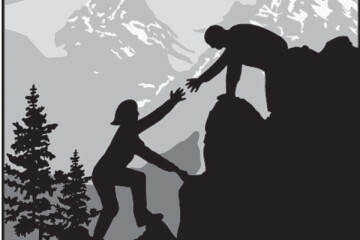Montana Peer Network
Meeting Those in Need Where They Are
Gallatin Valley law enforcement agencies are participating in a pilot program in partnership with Montana’s Peer Network (MPN) designed to serve community members who find themselves in the midst of a mental health crisis. 
People suffering from mental health issues often make their initial contact with law enforcement seeking help. Community members encountering people struggling with mental health issues do the same. Mental health calls responded to by various law enforcement agencies (sheriff, police etc…) typically take much longer to resolve than other types of calls because of their complexity. Often times people who call law enforcement for help with a mental health crisis will call several times over the course of a day, week or month. Each call is responded to by sending an officer out to check on the person in crisis and there may or may not be anything that law enforcement can do for their situation depending on the individual’s circumstance. Sometimes, if the crisis is deemed to be dangerous the individual may be taken into custody and brought to Hope House, our local Crisis Center or Montana State Hospital at Warm Springs. While Gallatin County law enforcement agencies do participate in Crisis Intervention Training and have the means to help those in mental health crisis they have many other types of calls to respond to on any typical day as well. The mental health calls continue to come in, the time spent responding adds up and the cost in taxpayer dollars multiply.
Montana’s Peer Network’s Recovery Coach Pilot Project offers a new approach to resolving this dilemma. Begun in January 2014 the Recovery Coach Pilot Project is an 18-month trial program serving Gallatin County and Livingston. When law enforcement agencies are contacted by a person in mental health crisis, depending on the type of crisis, they can now partner with Montana’s Peer Network to send a peer supporter to meet with the individual in crisis. The peer supporter physically goes to that person anywhere they are, at home, on the streets, in a shelter, etc… to assess what that individual needs to get them through their current crisis and offers tools to help avoid future crisis. Jim Hajny, Executive Director of Montana’s Peer Network explains the program this way; “We go out and try to build rapport and a relationship with that person. We see it as a long-term thing over many cups of coffee, not just a one-time contact. What does this person need? Do they need to see a counselor, general practitioner or psychiatrist? Do they need someone to listen? Once the initial response has occurred we then have ongoing contact with them over time to support their continuing mental health needs.”
Currently the Recovery Coach Pilot Project has two peer supporters, Executive Director Hajny and recovery coach Michelle Jermunson. The pilot project runs through June of 2015 and has referred 64 individuals with over 500 contacts. When asked about the programs success so far Hajny had this to say, “The program appears to be working, although 18 months is not a long time to go out and demonstrate the program’s effectiveness. The diversion dollars from the start of the program- January 10, 2014 -September 30 2014 is $90,970 and the program cost as of the same date is $103,000. We had 46 referrals during that time. The diversion dollars suggest it is working, it costs much less to intervene than to pay for a stay at the state hospital or a jail.”
Diversion dollars and taxpayer money savings aside, how is the pilot program working for the recipients? Hajny believes it is working very well. “A recent example that comes to mind would be a man who resides in Gallatin County who was calling in to law enforcement multiple times per week for assistance. I went out to meet with him and spent three hours with him the first day. I had a great response. After about 6 weeks of regular contact with me acting as a peer supporter the multiple calls to law enforcement have completely stopped. He no longer needed to call. He was able to deal with the issues in his life and make some decisions. His life changed for the better. The contact he had with someone else was what he needed. That kind of impact is hard to measure in dollars and the client is now doing great.” says Hajny.
Funding for this pilot program comes from government grants and donations. Montana’s Peer Network is a non-profit organization. For more info on Montana’s Peer Network please visit their website at www.mtpeernetwork.org or call Jim at 406-551-1058.

